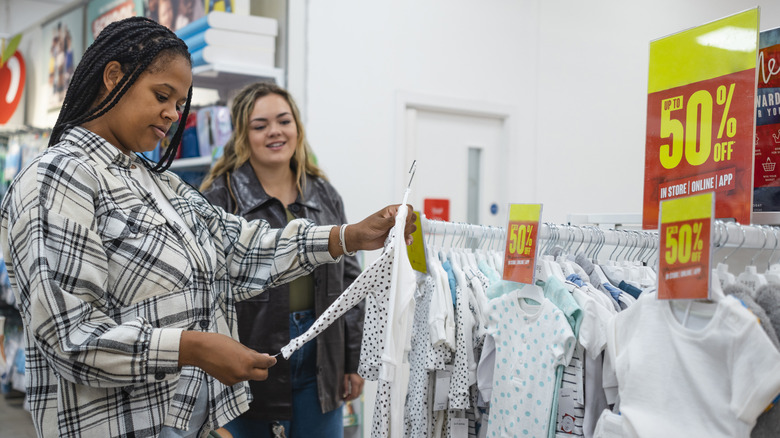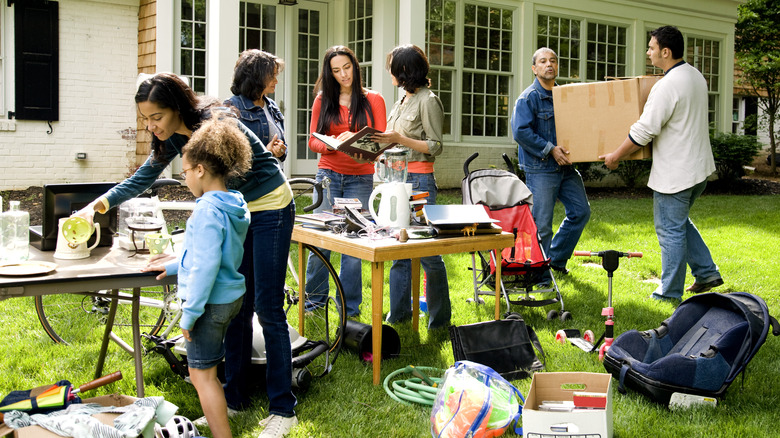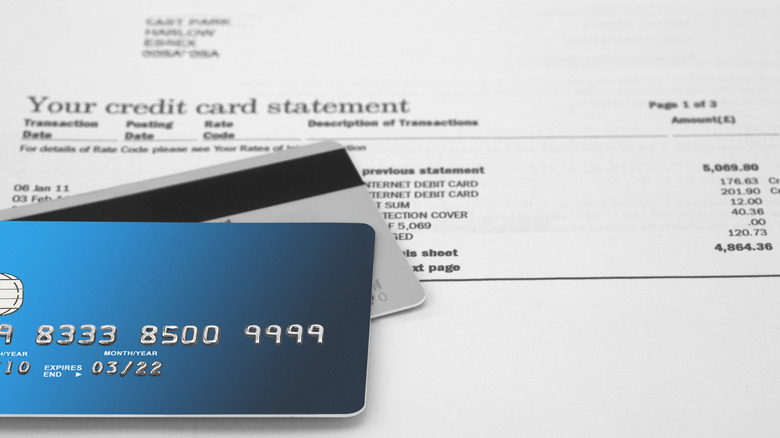15 Things Frugal People Do To Make Big Money Moves (And You Should Start Too)
If you're on a quest for financial security, frugality just might be the answer. After all, being frugal isn't about being cheap or going without the things you need. Frugality is about using your money wisely, living within your means, and consistently making good decisions about your spending habits that will help you avoid wasting money and prepare you to achieve your long-term financial goals.
Ready to improve your financial situation? You can learn a lot from considering how people who are frugal find ways to minimize spending without sacrificing quality of life. You just might be surprised to discover how much cash you can save by adopting at least a few frugal money moves as your own.
Frugality is not just one thing. It's a lifestyle that focuses on eliminating bad money habits that drain your finances and incorporating a series of positive financial habits into your day-to-day activities and decisions. The list below is a great place to begin mastering the art of frugal living.
Create a budget
Frugal living starts with making a budget and using it as a tool to understand and guide the way you spend money. After all, it's hard to know where you might be wasting money if you don't have a concrete way to track the flow of the funds that are coming in and going out. When you build a budget, you'll have a clear picture of your cash flow, including both your income and expenses. This will help you really understand where your money is going and identify places where it may make sense to consider cutting your expenditures. Once you have a budget it place, it's important to stick to it. Get into the habit of updating your budget as you bring in or spend money so that it's always up to date. Consult your budget regularly throughout each month as a way to help keep your spending on track.
Find some frugal friends
When you're looking to rein in unnecessary spending, one of the best things you can do is to find yourself some frugal friends. The company you keep can play a big role in how successful you'll be when it comes to adopting and sustaining a frugal lifestyle. After all, financial peer pressure is a real thing. It can lead to overspending and racking up debt at any stage of life. When you have friends who are also focused on frugality rather than buddies who live beyond their means, they won't encourage or pressure you to overspend on luxury items or expensive outings that your budget can't easily support. You won't have to defend your budget-friendly decisions to your financially like-minded friends. Instead, they'll be likely to applaud your money-saving efforts. You and your new fiscally responsible friends can bond over sharing tips and ideas on your joint paths to financial stability.
Buy staple pantry items in bulk
Buying staple pantry items in bulk can be a great way to help reduce your overall grocery spending, if you can find room in your budget to invest in this type of purchase. It's true that bulk pantry items will have a higher upfront price tag than smaller packages, but it's also true that you can save a lot per ounce or per portion when buying higher quantities. Consider budgeting for one or two bulk items per month to start building your stash. The savings will catch up with you before long, as you won't have to replace these items very often. As another option, consider asking your frugal friends or budget-conscious family members to chip in on bulk purchases that you can split. Not only will this help you save money, but you'll also be empowering your friends and/or relatives to do the same.
Plan meals around sales and low cost items
Speaking of food-related expenses, be sure to plan your meals and menus around supermarket sales and low-cost items (such as the bulk foods you decided to invest in as a way to build your pantry). It's not a secret that grocery prices are climbing, but supermarkets still regularly advertise great prices on loss leaders designed to lure shoppers into the store in the hopes that they'll also buy other, pricier items while they're there. Frugal shoppers know how to take advantage of these sales, going in with a steely resolve to purchase only the best bargains available that week without being tricked into spending money on other items. You can do the same, as well as capitalize on coupons and grocery rebate apps to bring your food costs down. To save even more, if you live near a discount supermarket like Grocery Outlet, check in regularly to capitalize on any great deals that are in stock.
Take lunch to work
When you're planning meals around sales, don't focus only on meals that you'll eat at home. After all, eating lunches out during the workday can add up to a big chunk of change. It's shocking how much Americans spend on fast food, and meals in casual dining restaurants usually cost even more. It's much better on your budget to make your lunch at home to take to the office with you rather than eating out. A sandwich or salad that you make yourself to carry to work costs a whole lot less than one you purchase from a sub shop or other restaurant, and chances are that the ones you make taste even better than what you might buy. Sandwiches and salads aren't your only choices, though. Simply make extra of whatever you're having for dinner so you'll have leftovers to microwave at work, or use leftovers to put together soup or stew to transport to work in a thermos.
Adopt free or super-cheap hobbies
With the high cost of going to the movies, attending concerts, and even eating out, entertainment can be a major budget-buster. However, having fun doesn't have to be expensive. There are a lot of fun hobbies and activities that are free or cost very little. For example, reading is a great way to exercise your mind, and costs nothing if you rely on your local library for books. Prefer something a little more active? Hiking or running is a great way to get exercise while enjoying the great outdoors, and — once you have a good pair of appropriate shoes — it doesn't cost anything. If you enjoy the outdoors but aren't keen on hiking, consider taking up digital photography using the camera on your cell phone. Whatever hobby you choose, you might get so good at it that you can turn it into a passive income stream that adds to the top line of your budget.
Build your DIY skills
Speaking of frugal hobbies and activities, why not make it your mission to acquire some new practical skills? Learning how to do things yourself is a great way to set yourself up to save money in many aspects of your life while also engaging in an enjoyable pastime. If you like working with your hands, put that to work by learning how to do things like install lights, do woodworking, repair electronic devices, or even do basic vehicle maintenance or repair work. If you're not mechanically inclined, there are plenty of other great DIY skills to tackle. From refinishing furniture and creating floral arrangements to decorating cakes or making fancy dinners for special occasions, every skill you master is a task you now have the ability to handle on your own rather than having to pay someone to do it for you when the need arises.
Barter with others
Not only can your DIY skills help keep you from having to hire people to provide the services you need, but they can also provide you leverage to use in bartering. Bartering is a transaction that involves trading goods or services with another party, without money changing hands. For example, if you know how to build bookshelves but don't know how to change the oil in your car, you might be able to work out a trade with someone who is skilled in car maintenance but not woodworking.
Bartering doesn't have to involve DIY skills. It's also possible to trade items or services. For example, you could offer to babysit for your neighbor's kids a few evenings every month in exchange for a steady supply of fresh produce from their garden. Or, if you have an expensive mixer but no longer bake, chances are that someone would gladly trade you something you want in exchange.
Look for used items before buying new
Chances are that you won't be able to find a bartering opportunity for every product you might need, so you'll still need to purchase items on a regular basis. However, that doesn't mean you have to buy brand-new products every time you decide to buy something. Buying secondhand items can be a great way to get great deals on things that you need. You can be sure that frugal people do their best to avoid buying brand-new merchandise when a previously owned version will do the job for less money. From Facebook Marketplace to local buy-nothing groups, yard sales, estate sales, and thrift shops, there are a lot of ways to find previously owned products that meet just about any need you might have. Before you start shopping around for secondhand items, make sure you know how much you would have to pay for a new version from a reputable retailer so you'll be able to tell if a seller is offering a good enough deal for you to buy.
Invest in quality rather than buying cheap
If you think frugal means cheap, that's a misconception that you really need to shake. Being frugal is not about buying the cheapest possible item, especially when a low, low price tag equates to poor quality. It's not a good use of your money to buy shoddy merchandise that doesn't perform as promised, or that breaks as soon as you try to use it. Frugal people look at purchases as investment decisions and prioritize quality over quantity. They look for good deals, but that doesn't mean buying the item with the lowest price unless it is also high in quality. It's a major frugal money move to spend more on a quality item that holds up to use rather than a cheap item that's nothing more than just junk. For example, a cheap mattress that is uncomfortable will cost you more in pain medicine, lost sleep, and chiropractor bills in the long run than investing in a high-quality bed. Take a page from the frugal spending playbook and invest in quality products that truly meet your needs — but only when you truly need them.
Minimize your utility bills
Frugal people don't spend a penny more on utility bills than absolutely necessary, and you shouldn't either. Utilities are a major household expense, so looking for ways to cut down on the cost is a great way to incorporate frugal living habits into your lifestyle. Whether you are a renter or if you own your own home, there are quite a few tips and tricks to save money on your electric bill and other utilities. From putting a stop to kitchen habits that run up your power bill to getting creative in your approach to cutting down on your winter heating expenses, you might be surprised to discover how many ways there are to cut down on utility costs. From promptly taking care of home maintenance needs to using energy-saving small appliances instead of built-ins or full-size alternatives, what seem like super-small changes can lead to big savings.
Avoid unnecessary services and subscriptions
Frugal people don't spend money on things that they don't use. When you're trying to make the most of your money, it's important to avoid signing up for unnecessary services and subscriptions and to cancel any that you already have. If you're paying money — even just a few dollars each month — for any kind of subscription, membership, or other type of service that you never or rarely use, then you are throwing away money that could be allocated elsewhere in your budget. Make a firm decision not to sign up for any more so-called free trials for TV apps, membership programs, and the like unless you're certain that you actually want to subscribe. Too often, people sign up for free trials that they never even look at and then forget about them. Once the trial period ends, the charges begin. This can lead to being auto-billed for and paying useless fees for months or even years.
Don't carry credit card balances
Credit card debt is a slippery slope. Frugal people don't buy things they can't afford, which means they don't use credit cards for purchases if they can't pay off the balance immediately. Carrying a balance on a credit card is a sign that a person is terrible with money. If there is something you want to buy, but you have to put it on a credit card and plan to carry a balance on the account, then you can't afford to purchase the item. It's as simple as that. It might make sense to use a rewards card to make a purchase in order to get points, but only if you pay the entire balance before interest is charged. If you're already carrying a balance, then you need to put your resources into paying it off because interest accrues on revolving credit accounts at an alarming rate. Not only that, you can get hit with exorbitant fees for exceeding your credit limit or missing a payment. If you aren't currently carrying a credit card balance, it's in your best interest to keep it that way.
Consider getting a side hustle
Big frugal money moves aren't all about saving money; they're also about bringing money in. If you could benefit from having more money than you're currently bringing in, you may want to consider adding a side hustle to the work you're already doing. You certainly won't be alone. According to a 2024 Bankrate survey, approximately 1/3 of Americans work side gigs in addition to their regular job. Sound interesting? Explore our list of 13 easy side gigs for extra money for ideas. When you start looking for opportunities, it's important to be aware that there are scammers out there looking to take advantage of honest people looking to make some extra money. Protect yourself by learning key signs of online job scams so you can stay away from side hustle lies and so-called opportunities that seem too good to be true (because they probably are).
Live within your means
Frugal people don't always follow the same tips or have identical spending habits, but they do have something in common. They commit to living within their means, and to get ahead financially, you should too. The biggest barrier to financial security is falling into the trap of spending money that you don't have. If you have to borrow money to meet your spending needs, then that's exactly what you're doing. We're not saying that you shouldn't borrow money responsibly for major purchases, such as the cost of education or career training, buying a practical car for transportation, or taking out a mortgage to become a homeowner. However, it's irresponsible to rack up debt for non-essentials to support a lifestyle that you can't afford. Making frugal and wise financial decisions today will help pave your way to living the financially stable life of your dreams.















